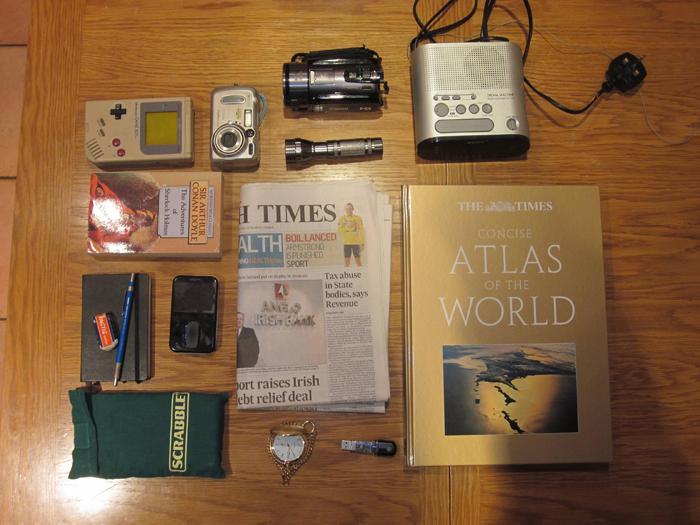
If you rewind time and go back ten years from now, you would see an entirely different scenario than you probably see now. Instead of people staring at phones in their hands as they text and Tweet the day away, you would see people with phones being held up to their ears (back then, this was the norm for communication). People would gather around the TV to watch the news, movies, or TV shows. When people grouped together for a photo, the photographer was holding a camera that was only meant to be a camera. Looking at phones today, it's sometimes hard to believe that a single device replaced so many of these aspects in our lives.
Not that it's a bad thing. In fact, most of the time I'm happy that I only have to worry about losing one device rather than getting multiple devices stolen, not to mention I'm able to put insurance on my device so that if it does get stolen I can just order another one for a fraction of the cost. Back in the day when you carried a cell phone, an mp3 player, a camera and a GPS, that was a lot of things that you would have to worry about replacing if stolen. Of course, the downside to that is that at least then you didn't have as big of a risk as getting everything stolen in one fell swoop.
But despite those risks, there is some convenience to only needing to carry around one device with you. If nothing else, it saves a lot of room. Let's take a look at some of the things that phones have been able to replace for us:
Media players on phones have gotten so good for average use that it's a rare sight to see anybody using any type of true mp3 players anymore, including the infamous iPods. Although iPods, specifically classic ones that only come in 160GB variants now, are still good for people who have crazy amounts of music of videos to store on a device, it's getting harder to keep them competitive with phones that are constantly increasing the memory limit and battery life.
With services like Netflix, Hulu Plus, Amazon Instant and YouTube having applications for most smartphones, when it comes to watching video and TV alone sometimes it's just more convenient to open up one of these apps and use the perfectly portable smartphone as your source for movies and TV. Even if you don't subscribe to these services, it's almost just as easy to load movies you own into your device for viewing on-the-go. Of course, for live TV and live news you're probably not going to have much luck, but applications like Netflix and Hulu Plus are great for catching up on previous seasons of TV.
Although eReaders haven't been around for very long, they've already made a quick adaption to smartphones. Especially considering that many smartphones have larger displays, eReading on smartphones is a great alternative to using a tried and true eReader like a Kindle or Nook. Smartphone eReaders are also nice becuase you can connect a library you might already have, like with your Kindle or Nook, and pick up where you left off from an eReader on your smartphone. Some people don't even have a regular eReader anymore becuase they find that they prefer eReading on their smartphone.
Although I never carried around a flashlight with me on the regular, there were a couple of times where I sure did wish I had one. Fortunately, most smartphones can take advantage of flashlight applications. Even if you don't have a flash on your phone, these applications can usually optimise your screen to be so white and bright that it can still serve as a decent flashlight, which is sometimes all you need in order to get yourself out of a pickle.
Every smartphone market has some type of game category on it, and if you're not the type of person who really has a reason to purchase a portable game system like a Nintendo DS or a PSP or what have you, but still enjoy games in your spare time, your smartphone can serve as a decent alternative. Most smartphones have a good selection of games from indie developers and even some big name titles that have been adapted from other systems. Some platforms even have emulators so that you can play your favorite games from systems of old.
While not everyone prefers to use their smartphone camera as their main camera, for some people it works out for the better. For the casual photographer (i.e. it's not how good the picture looks, necessarily, but more importantly the subject of the photo) a decent camera on the back of the phone can be more useful than an expensive digital camera that sits in the closet collecting dust.
These are just a few of the electronics that smartphones have been able to replace for some of us, but now I want to hear from you, dear reader: What are some electronics that your smartphone has been able to replace for you? Has it proven to be better than the original, or do you just prefer it out of convenience? Let me know your thoughts in the comments below!
Images via Imgur